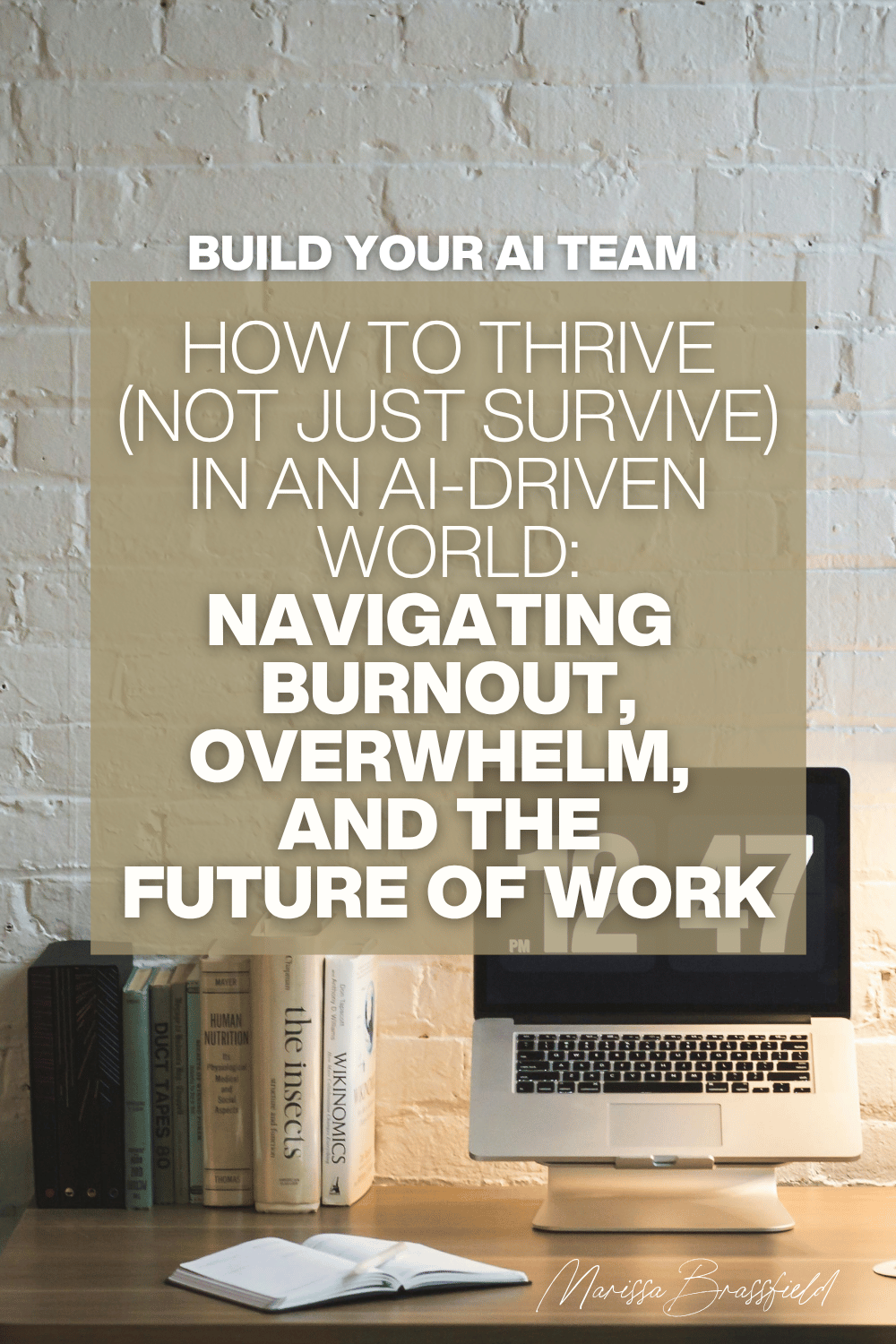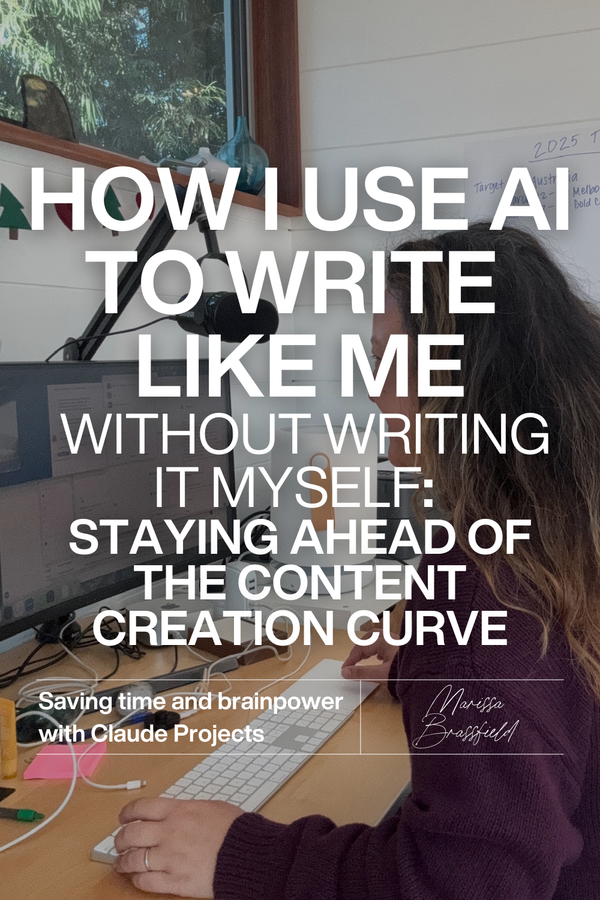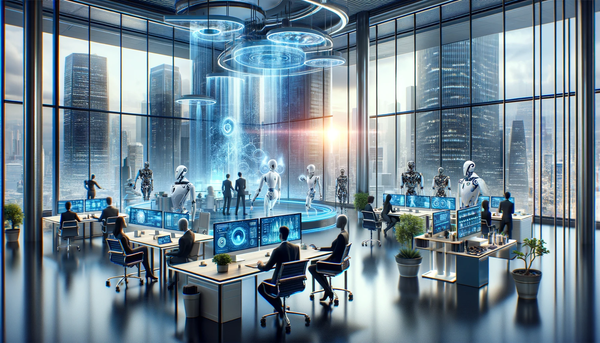Burnout, exhaustion, and overwhelm are all too common in today's fast-paced work environment. As we integrate AI technologies into our workflows, it's essential to manage these powerful tools effectively to avoid exacerbating these challenges. By remaining clear, open-minded, and adaptable, we can harness AI's full potential while maintaining our creative bandwidth, ultimately empowering each of us to become visionaries and leaders in our own right.
AI: A Double-Edged Sword
AI can be a game-changer, helping us streamline tasks, analyze data, and make better-informed decisions. However, if not managed correctly, AI can also amplify existing stressors and lead to burnout. As AI generates vast amounts of information at breakneck speeds, it's vital to approach these tools with intentionality and balance.
Consider Jane, a marketing professional who constantly faced tight deadlines and high expectations. With the introduction of AI tools, Jane's productivity soared, but so did her workload. The ease of generating content and accessing data led her to take on more projects, pushing her to the brink of burnout.
Similarly, John, a software developer, felt overwhelmed by the influx of AI-generated suggestions and updates. The constant stream of information made it difficult for him to focus and prioritize, leaving him feeling perpetually stressed and unable to tap into his creative problem-solving skills.
The truth is that Jane and John can be any of us. In our experience at Ridiculously Efficient, learning to partner with AI was initially overwhelming. There's a clear learning curve, and many of us have never had an experience where we've been able to build on ideas as quickly as we can think of them.
Intentional Use of AI to Combat Overwhelm
To prevent AI from exacerbating burnout and overwhelm, it's crucial to set clear boundaries and goals. Determine which tasks truly benefit from AI assistance and where your human skills are indispensable.
By intentionally delegating tasks to AI, you can maintain control of your workload and preserve your creative bandwidth for critical thinking and innovation.
Cultivating Open-Mindedness and Adaptability
In an AI-driven workplace, the ability to adapt and troubleshoot in real-time is essential. This requires maintaining mental clarity and composure, even amidst the torrent of information AI can generate.
Techniques such as mindfulness, time-blocking, and regular breaks can help manage stress and keep your mind sharp, ensuring you can effectively interpret nuance, invent new ideas, and innovate.
Empowering Visionaries and Leaders
AI has the potential to democratize leadership and visionary thinking across all roles in an organization. By intentionally managing AI tools and prioritizing creative bandwidth, every worker can tap into their unique leadership qualities, bringing fresh insights and perspectives to the table.
For example, a customer service agent using AI to handle routine inquiries can devote more time to empathizing with customers and crafting personalized solutions. Similarly, a data analyst leveraging AI can spend more time exploring innovative ways to visualize and communicate their findings to the team.
AI is undeniably transforming the modern workplace, but it's up to us as human workers to manage these tools effectively and avoid burnout. By being intentional, open-minded, and adaptable, we can maintain our creative bandwidth and excel in our roles.
As we harness the power of AI, we must remember that our unique human skills – empathy, creativity, and critical thinking – are what set us apart, and it's these qualities that will enable us to thrive as visionaries and leaders in the AI-driven world.










Member discussion